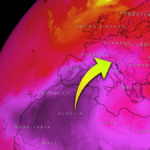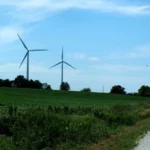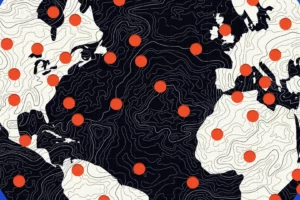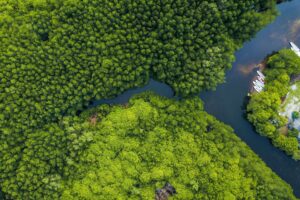Climate change, its detrimental effects and the potential to wipe out the region completely have received an increasing amount of attention over the past few years as major world powers move to cut back on fossil-fuel use and adopt clean energies.
However, one of the more indirect ways climate change can devastate Caribbean populations is seldom discussed: its impact on labour.
The more immediate concern of harsh weather events wreaking havoc on countries has understandably been the forefront of conversations surrounding climate change in small-island developing states.
As a region that is already prone to hurricanes and sometimes even earthquakes, worsening natural disasters could mean the extinction of entire groups of people.
But just as immediate is the need to protect vulnerable groups against the many ways climate change can decimate jobs and increase poverty in a region that is already struggling with high rates of job informality and poverty.
Research from McKinsey & Company suggests that severe weather events can lead at-risk groups to lose their jobs in several ways. At the same time, lack of diversity in emerging industries in the green economy also means that the most vulnerable workers can be shut out of high-earning, stable jobs.
McKinsey & Co based this data on a study of how climate change uniquely affects African-Americans, and how it can exacerbate racial gaps in the United States.
“Black populations are particularly vulnerable to physical-hazard exposure, since they are concentrated in areas especially susceptible to extreme weather,” McKinsey said in its report.
“As people and businesses attempt to adjust to a low-carbon economy, they must also further contend with second-order transition risks — such as the loss of jobs in impacted industries — resulting from market changes.”
While many Caribbean countries have a Black majority, the way climate change can disproportionately impact low-wage workers of colour can still apply within this region.
According to data from the World Bank, poverty rates in the Caribbean are nearly 30 per cent in the aftermath of the Covid pandemic, which crippled tourism.
Although tourism has largely recovered, poverty rates and informal employment remain relatively high and are not projected to significantly decrease in the near future.
McKinsey’s research pinpointed how low-wage earners can lose their livelihoods because of climate change, and how they have fewer financial resources to fall back on if that comes to pass.
“There’s a higher concentration of Black workers in low-wage frontline jobs,” the study noted.
“Black people save $75 billion less than their White peers. One out of five Black Americans live in food deserts, with limited access to fresh, healthy food options.”
Additionally, severe climate change could eradicate all outdoor jobs — such as construction workers, contractors, farmers, fishermen, agricultural workers, landscapers, and more. In the Caribbean, the extinction of these jobs could mean mass unemployment, exacerbating poverty and increasing vulnerability to extreme weather events, external shocks and related fallout.
At the same time, diversity in emerging clean-energy fields remains low. The World Bank, for instance, found that women make up only about one third of the workers in the green economy.
According to Environmental Entrepreneurs, “Black and Hispanic/Latino workers are more poorly represented in clean energy than they are across the rest of the economy, with Black people composing 8 per cent of the clean energy workforce [compared with 13 per cent economy-wide] and Hispanic/Latinos making up 16.5 per cent [versus 18 per cent economy-wide].
“Women represent less than 30 per cent of all workers in the sector despite accounting for nearly half [48 per cent] of the US labour force as a whole.”
Many Caribbean countries have launched programmes to get young people involved in emerging green industries, which could change this trajectory if successful.
In the meantime, the combined risk of wide-scale job loss and limited access to highly skilled, high-paying jobs in clean energy emphasises the need for urgent action to address climate change, protecting lives, safeguarding livelihoods and ensuring future prosperity for the Caribbean region at large.
Source: The Royal Gazette











Add Comment